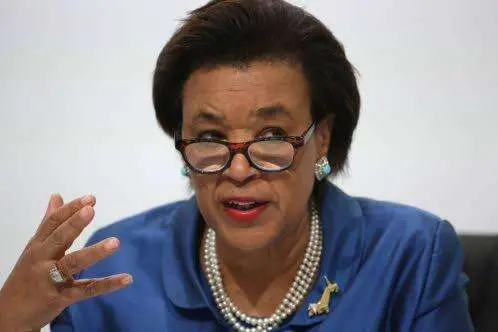
US$2-trillion trade pact
Commonwealth leaders yesterday concluded their summit in London with the adoption of a six-point connectivity agenda to boost intra-Commonwealth trade to US$2 trillion by 2030.
At the same time, the heads of government agreed to strengthen cybersecurity frameworks and response mechanisms across the 53 states between now and 2020.
A news release from the Commonwealth Secretariat said that the six-point connectivity agenda was in response to the risks to growth presented by rising protectionism.
The six points of the declaration are:
• Physical connectivity focussing on trade facilitation, best practice on infrastructure development and trade information;
• Digital connectivity focussing on supporting the development of national digital economies, improving regulatory frameworks and best practice on digital infrastructure;
• Regulatory connectivity focussing on improving understanding of regulatory regimes across the Commonwealth, promoting good regulatory practice and mutual recognition;
• Business to business connectivity supporting greater interface between the public and private sectors, as well as between Commonwealth businesses, in particular micro, small and medium enterprises, and assisting member states to attract investment, particularly with the aim of enhancing the private sector’s role in promoting the blue and green economy;
• Supply side connectivity to encourage the participation of all members in global value chains; and
• Inclusive and sustainable trade ensuring that women’s and youth’s economic empowerment are mainstreamed in all pillars.
The secretariat said that senior trade officials from across the Commonwealth will meet in June to begin operationalising the connectivity agenda.
“The declaration on the Commonwealth connectivity agenda for trade and investment underpins our commitment to ensuring that we leverage the Commonwealth advantage for the benefit of all of our 53 member states,” the release quotes Commonwealth Secretary General Patricia Scotland.
“Critically, it provides our membership who, despite representing a broad spectrum of constituents in world trade, nevertheless have similar regulatory backbones with a space away from the give-and-take of trade negotiations to share experiences, and learn new approaches to addressing existing and emerging trade and investment challenges,” Scotland added.
The cybersecurity cooperation is said to be the world’s largest and most geographically diverse inter-governmental commitment on that issue. It followed an announcement by the United Kingdom (UK) Government to pledge up to £15 million to help Commonwealth countries strengthen their cybersecurity capabilities and “tackle criminal groups and hostile state actors who pose a global threat to security, including in the UK”.
“Cyberspace opens up new opportunities for socio-economic development by broadening common space and extending access,” Scotland said.
“There is immense fresh potential for the multiple layers of Commonwealth connection to be used for the common good. The many positive benefits that can be derived are easily undermined and subverted by cybercrime, which has no respect for national boundaries. Commonwealth member countries are working together to strengthen their capacity, individually and collectively, to detect and guard against the debilitating threats cybercrime poses to many aspects of national, regional and international security,” Scotland added.
According to the secretariat, with the Internet increasingly central to global commerce, the Commonwealth Cyber Declaration sets out a shared vision of cyberspace in areas such as economic and social development, and online rights.
The declaration includes recognition of the potential for a more active Commonwealth role in international discussions on global stability and cyberspace.
“There is a genuine need for international cooperation and capacity building for law enforcement and criminal justice officials on cybercrime, and this declaration represents a significant step forward in addressing countries’ concerns,” the release quotes Steven Malby, head of the Commonwealth Office of Civil and Criminal Justice Reform.
























